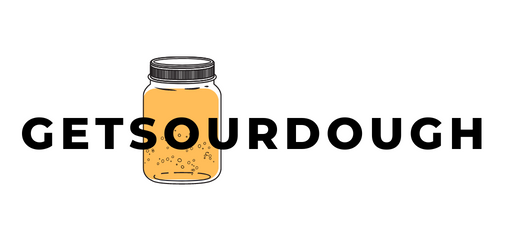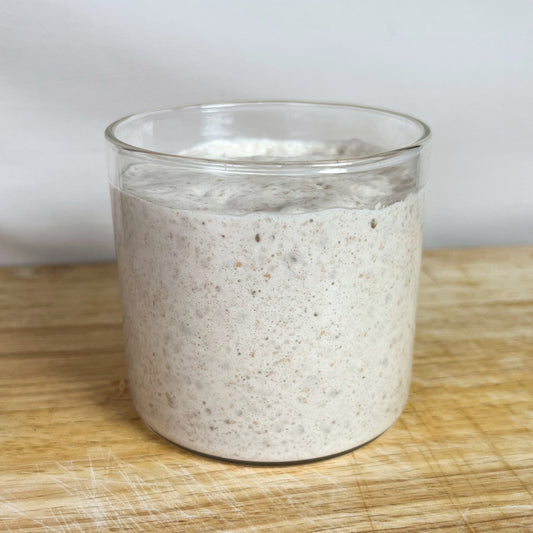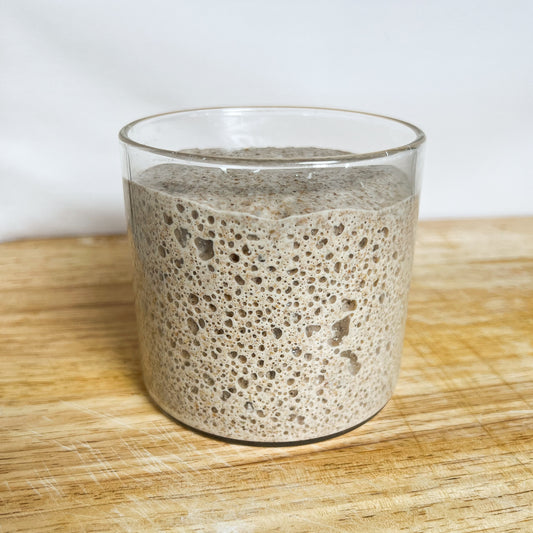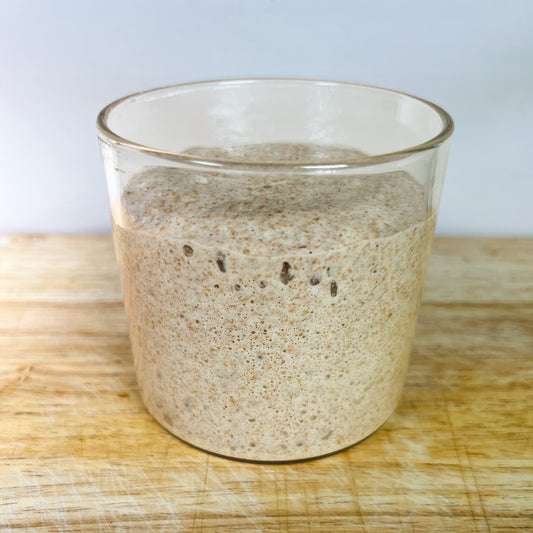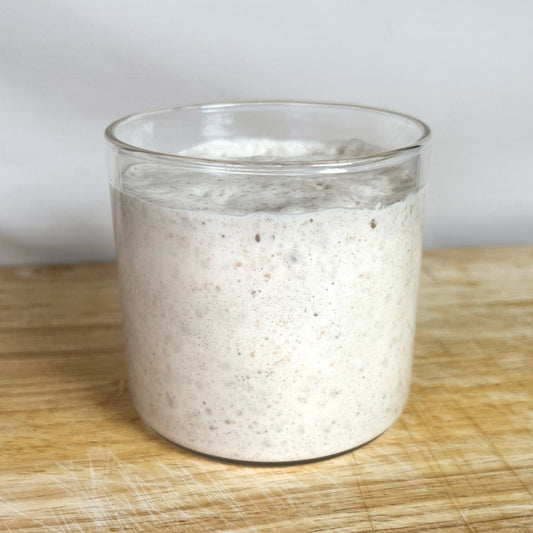What to Look For When Buying Sourdough Starter

The world of baking sourdough bread can seem a little daunting. With all the information out there, you may have no idea where to start. This blog will walk you through a few myths and misconceptions about sourdough starters as well as inform you on the benefits of fresh or dry starters and what to look out for when buying a sourdough starter.
Fresh Vs. Dry Sourdough Starter
Pros of fresh
A fresh sourdough starter is ready to use immediately after you get it. You may be able to buy a sourdough starter in your local area to avoid transportation as well as get a starter that is already acclimated to your home climate.
Cons of fresh
If you buy sourdough starter and it needs to be transported, a fresh sourdough starter would need to be fed along the way or shipped really fast. When you buy sourdough starter from us we use 24h Royal Mail shipping to get it to you as fast as possible. Be wary of ordering from overseas as this can significantly increase shipment times.
Pros of dry
If you are buying a starter that needs to come by post, it can be very helpful to buy a dry one. It is also useful to dry your starter out if you aren’t going to need it for a while. You can store it in a sealed container and revive it when you are ready to use it again. If you do not make bread on a consistent basis, then drying out your starter can be a useful tool. If you dry it out, you will waste less flour by feeding a starter that you aren’t using.
Cons of dry
A dry Sourdough starter needs to be fed multiple times before use after you revive it.
Types of Flour and How They Affect Your Sourdough Starter
It is important to find out what kind of flour a starter is made from before you buy it. There are two reasons to do this; each flour has a different level of gluten in it and the flavour of each flour affects the flavour of your starter. Here's a more in depth blog about how different flours affect your sourdough starter.
As a beginner, it is wise to start with strong white bread flour. This wheat flour has the strongest gluten development and is most likely to succeed. It is also more widely available and easiest to procure. It varies in protein content between 9% and 12%.
Rye flour can be up to 16% protein. It has gliadin, not glutenin which can cause it to be more viscous and sticky. This is a much trickier flour to get right. However, when it is made correctly it has better fermentation, flavour, and can produce a pretty loaf. Though not particularly beginner friendly, it has the potential to produce wonderful sourdough.
The Age of Sourdough Starter
Many people believe that the older a sourdough starter is, the better it is. This is a myth. What matters most is how active and strong your starter is.
When using a purchased starter, you must add flour and water to it and feed it often. This means that your starter becomes “new” over the course of a few weeks. It still maintains its flavour and robustness but it is no longer the same starter. It is also unlikely that your home's conditions and the flour you have available will be the exact same that the place you got the starter used.
“Older is better” may not be true in terms of how long it has been around but it is true when it comes to fermentation. The longer you ferment your starter, the stronger the flavour it will attain. If you want a stronger sourdough flavour then, rather than buying an “older starter” simply leave the one you have or bought, to ferment a bit longer before use.
Location of Where it’s Made
It may be fun to say that your sourdough starter comes from San Francisco and is one of the best around but that wouldn’t really be true even if it did in fact come from San Francisco. Each starter has its own specific flavour depending on where it is made. Your kitchen is no exception. This means that even if you bought a San Francisco starter, it will soon shift to your kitchen’s flavour. This happens because of the different climate as well as the flour you are feeding your starter. There’s no point in buying sourdough starter from San Francisco because it will eventually converge on the “flavour of your kitchen.”
It may not matter if you get your sourdough starter from a “prestigious” starter line but it does matter where you buy your sourdough starter. Buying local sourdough starter is better for the environment, it is less trouble to transport, and has the highest likelihood of flourishing in your kitchen.
It is up to you whether you want a dry or a fresh starter. You have to assess your baking needs and decide whether you plan to cook sourdough bread often and therefore need to keep a fresh starter or whether you bake it more infrequently and prefer a dry starter. It is also important to know what kind of flour your starter is made with and realise that “old” isn’t as important as heavily fermented.
